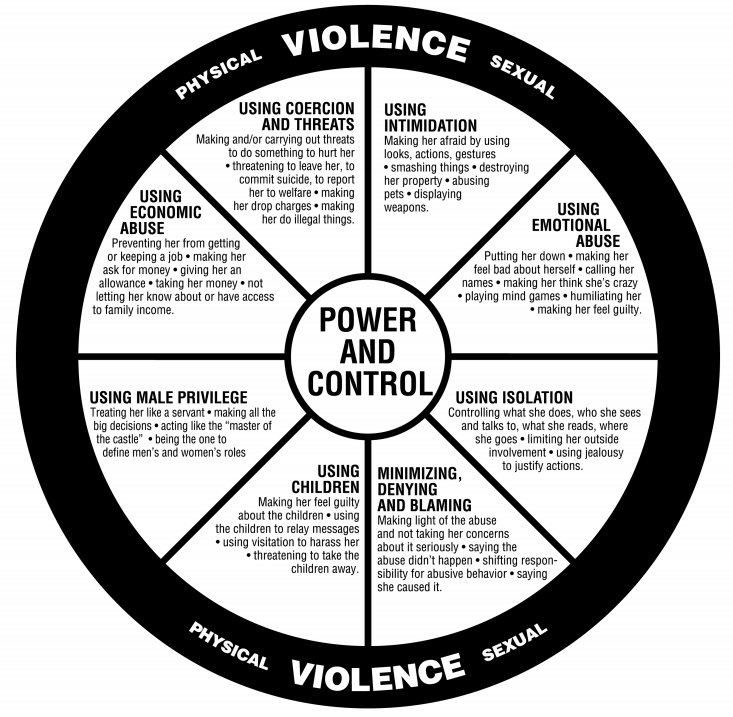
There are many forms of abuse, some are clear and some are less easy to identify.
Emotional, psychological or verbal abuse:
involves undermining a person’s self-esteem by constantly criticising them, belittling their abilities, calling them names or other forms of verbal abuse, damaging their relationship with children or preventing them from seeing their friends and family. Emotional violence involves instilling fear through intimidation, threatening to physically harm oneself, one’s partner or children, destroying pets and property, engaging in “mind games” or forcing the person to isolate him/herself from friends, family, school and/or work.
Financial or economic abuse:
involves making or attempting to make a person financially dependent by exercising total control over his or her financial resources, denying access to money and/or prohibiting the person from attending school or working.
Stalking:
involves any type of behaviour that has no legitimate purpose and is intended to harass, annoy or terrorise the victim. Typical stalking activities include repeated phone calls, unwanted letters or gifts in the mail, surveillance at work, at home and in other places the victim is known to frequent.
Sexual abuse:
this includes forcing a partner to participate in a sexual act without their consent, touching or exposing them unwillingly, revenge pornography, pressuring you about contraceptive or abortion choices.
Physical abuse:
this is any unwanted physical contact with you. It includes hurting or trying to hurt a partner by hitting, kicking, burning, grabbing, pinching, pushing, slapping, pulling hair, biting, denying medical attention or forcing alcohol and/or drugs, or other forms of physical force.
Discernment is not always as obvious as you think, especially when you are directly involved. To help you, here are some signs developed by the United Nations to clearly identify domestic violence in everyday life and actions.
The following questions can help you to better identify an abusive relationship:
If you recognise yourself in any of these situations, it’s time to open up and find support, without help the abuse will continue. Taking the first step to find help is a courageous step. There are online resources and local shelters ready to assist you:

